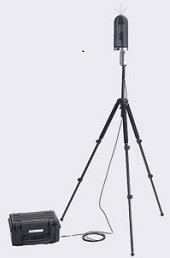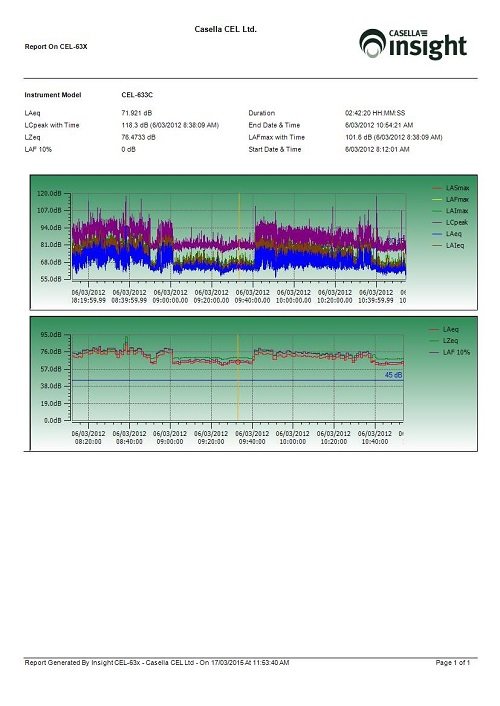Traffic Noise and the meter to measure it!
Traffic Noise and the meter to measure it! |
 | Sound level meter kits for performing assessments of traffic noise have been a commonly requested commodity recently. So, with this in mind we thought it would be worth covering off on what noise is, how environmental factors can influence road noise and finally the meter needed to undertake these measurements. What is Noise? Noise is any unwanted sound and is quantified in decibels (dB). The decibel scale is a logarithmic scale and as such a 3dB increase in the sound level represents a doubling of the noise intensity. This means that a small increase in noise level can relate to a significant increase in perceived noise. Noise measurements are generally adjusted to correlate with the way in which the ear perceives sound, giving a noise unit called ‘A’ weighted decibels, or dB(A), these are the units used to measure the traffic noise. This allows us to establish noise in a quantifiable way when compared with how the human ear perceives sound. | |
Traffic noise can be influenced by a range of factors including: • Traffic volume, speed, and number of heavy vehicles • Shielding of the road by structures or trees that act as noise barriers • The distance from the road • Gradient of the road • The surrounding terrain, ie. Hills or a valley • The ground cover between the road and the receiver. ie. Pavement, grass or soil etc. • Wind (wind coming from the road will increase noise levels, whilst wind going toward the road will reduce noise) • Rain on the road (will increase the noise) • Temperature inversion (when cold air sinks to the ground on a cold night it creates an increase in noise) Legislation and Policies vary around the country and we strongly advise that you contact your local governing body to further discuss which measurements you need to undertake. In most instances we have found there to be a need to measure either LA10 or LAEQ and these measurements need to be undertaken over a specified period of time as defined by the Legislation/Policy. LA10 is the notional noise level in dB that was exceeded for 10% of the measurement duration that is, for 10% of the time the noise level was above this value. Whereas LAEQ is equivalent sound pressure level—the steady sound level that, over a specified period of time, would produce the same energy equivalence as the fluctuating sound level actually occurring. This allows the measurements to closely represent what is actually occurring over a more quantitative period of time, rather than just giving a short snapshot which may produce results that do not actively represent what is occurring over the course of a day/night. In order to undertake these measurements the meter generally needs to be left in place for a significant period of time; for instance in Victoria an LA10 measurement needs to be undertaken for an 18 hour period for residential buildings, and a 12 hour period for other noise sensitive buildings such as schools. As the meter needs to be left in place and adverse conditions may be encountered a weatherproof kit will need to be used. We offer the Environmental Noise Monitoring Kit, this kit features a weatherproof case and outdoor microphone, along with a Type 1 sound level meter with 1/3 Octave band analysis. The meter will record LAEQ and statistical Ln Parameters including LA10. And with the capability to record for up to 7 days unattended it makes it the ideal kit for road traffic investigations. With this kit you can produce reports detailing the levels obtained and there is an example report shown below:  Figure 1: Casella Insight report reflecting LA10 and LAEQ If you would like to discuss this kit further or would like to discuss how it could work in your application, please feel free to contact one of our friendly Scientists via
email or phone on 1300 737 871.
| ||
See our other newsletter articles here!
Contact our expert scientists now to get the right meter or data logger to suit your needs and discuss your project.
Phone: 1300 737 871
Email: [email protected]
